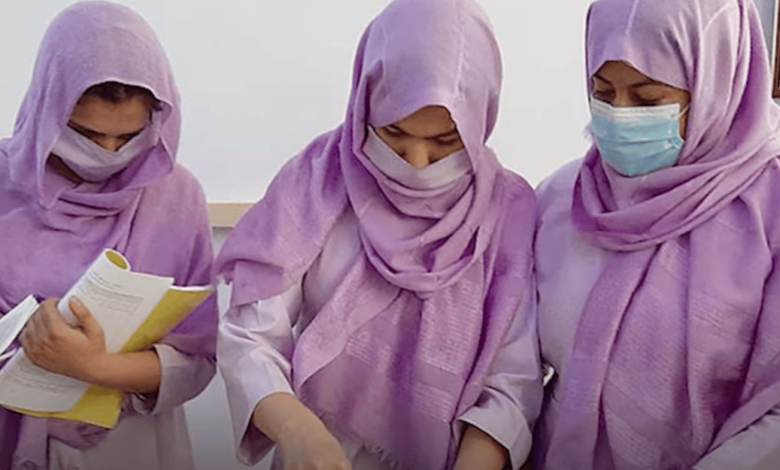Taliban’s Ban on Women in Nursing Sparks Global Outrage

In a devastating blow to women’s rights and healthcare in Afghanistan, the Taliban recently imposed a ban on women pursuing education in nursing and midwifery courses. This decision, issued by Taliban supreme leader Haibatullah Akhundzada in early December, was communicated to directors of private medical training institutions during a meeting at the Ministry of Public Health in Kabul. The move has raised serious concerns about the future of healthcare in the country.
The ban on nursing and midwifery education for women is particularly significant as these fields represented one of the few remaining areas where Afghan women could still pursue higher education. Since the Taliban regained control of Afghanistan in August 2021, they have systematically dismantled women’s rights, including access to secondary and university education. This latest restriction effectively closes off one of the last educational pathways available to women in the country.
The impact of this ban is far-reaching. It affects approximately 17,000 female student trainees who were pursuing careers in nursing and midwifery. These women, who were on track to become essential healthcare providers, now face an uncertain future. The ban not only crushes their personal aspirations but also deprives Afghanistan of a crucial workforce in its healthcare system.
Afghanistan’s healthcare system was already facing significant challenges before the ban was implemented. The country has one of the highest rates of maternal mortality globally, with an estimated one woman dying every two hours during childbirth. The shortage of medical and paramedical staff has been a persistent issue, and this new restriction is set to worsen the situation dramatically.
The ban on women in nursing and midwifery education will lead to a significant shortage of female healthcare professionals in the future. This is particularly concerning in a cultural context where many women prefer (or are only allowed) to be treated by female healthcare providers. In some provinces, women are already banned from being treated by male healthcare professionals, further limiting their access to essential medical care.
The long-term consequences of this ban are likely to be severe. Without a steady influx of trained female nurses and midwives, maternal and infant mortality rates in Afghanistan may increase even further. This could reverse years of progress made in improving women’s and children’s health in the country.
International Condemnation and Concerns
The international community has responded to this ban with widespread condemnation. Human Rights Watch and the United Nations Assistance Mission in Afghanistan (UNAMA) have both spoken out against the decision, highlighting its detrimental impact on women’s rights and the overall healthcare system in Afghanistan.
The Organization of Islamic Cooperation, along with other international bodies, has expressed grave concern over the Taliban’s decision. These organizations emphasize the negative impact this ban will have not only on Afghan women but also on the entire healthcare sector of the country.
Women’s rights defenders and health officials within Afghanistan have also voiced their deep concern and frustration. They stress the severe consequences this ban will have on women’s health and the overall quality of healthcare available in the country. Afghanistan is 177th out of 177 countries on Georgetown University’s global Women Peace and Security Index of inclusion, justice and security for women.
This ban on nursing and midwifery education is not an isolated incident but part of a broader pattern of restrictions imposed by the Taliban since they regained control in 2021. In addition to limiting educational opportunities, the Taliban has also placed severe restrictions on women’s freedom of movement, ability to work, and participation in public life.
These cumulative restrictions have effectively pushed women out of public spaces and limited their ability to contribute to society in meaningful ways. The ban on nursing and midwifery education is particularly cruel as it not only limits women’s personal development but also prevents them from serving their communities in critical healthcare roles.






